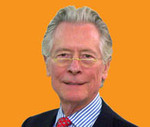Johnny Begood and the Mispricing of Intellectual Capital
Why does a PhD teaching ethics in the Philosophy department of a university make less than half as much as he could teaching ethics in its business school? Because the intellectual capital created by PhD degrees in many of the academic disciplines is seriously mispriced by American universities. How might that mispricing be corrected? One answer to this question is presented in this post.
JOHNNY BEGOOD
In junior high school Johnny Begood loved to read the classics. When the other kids spent their spare time practicing on their skateboards, Johnny could be found in the library reading Plato. Naturally he majored in philosophy in college and earned his PhD from an Ivy League University in 2003. He wrote his dissertation on the meaning of life.
Following his graduation Dr. Begood accepted a position at a small, but prestigious, private university in New England. Today he is a tenured associate professor teaching ethics in the Philosophy Department. In a recent conversation I asked him about his salary. He said “I make less than the local high school football coach.”
MISPRICING OF INTELLECTUAL CAPITAL
Their faculty represents the intellectual capital in American universities. Yet in the academic disciplines that capital is systematically mispriced on almost every campus. In the 2006-07 survey of starting salaries assistant professors in philosophy and physics averaged $47,894 and $52,395 respectively. It’s pretty much the same story across the board. For example psychology professors started at $50,406 and sociology professors at $49,019.
In the same academic year, on many of the same campuses, the starting salaries for professors in business schools averaged around $103,000.
Of course there are huge variations from these averages for top private universities compared with public universities and small private colleges. But whether using averages or outliers to compare salaries in the academic disciplines with those in the business disciplines in American universities one finds a significant mispricing of intellectual capital.
IMBALANCE IN DEMAND AND SUPPLY
You don’t need to look very far to discover the underlying reasons for this mispricing. First, there has been a large growth in the demand for business education both within the American market and around the world. At the same time the supply of academically qualified (PhD) business faculty has been shrinking for years. Due both to a drop in the number of PhDs produced by business schools and the retirement of senior faculty. Second, over the last decade the production of PhDs in the academic disciplines has held constant while the number of openings has shrunk. The constant production was due partly to university requirements for PhD output in the academic disciplines. And partly to the fact that many of the candidates for degrees in these fields aren’t in it for the money.
CORRECTING THE IMBALANCE
As you might expect the Association to Advance Collegiate Schools of Business [AACSB] International found a market-driven solution to correct the imbalance: train PhDs in the academic disciplines to do research and teach in business schools. Subsequently, invitations were sent to the deans of accredited schools to submit proposals on how to implement this approach. In September 2007 the AACSB board endorsed five “Post Doctoral Bridge to Business Programs.” The Freeman School at Tulane University is one of them. Full disclosure: I’m the faculty director of that program.
THE TULANE ADVANTAGE
Tulane's program provides faculty holding non-business doctorates with face-to-face classroom training in an area of specialty equivalent to that received by our full-time PhD students in Finance, Accounting, Organizational Behavior or Marketing. The curriculum is delivered during in-residence weekend seminars offered in an executive format, meeting three weekends (Friday, Saturday, and Sunday) in each of the fall and spring semesters and supported between classes by Adobe Connect discussions.
Most of these seminars are taught by the same faculty that teach in our full-time PhD program and deliver the same intellectual content. Candidates will receive graduate course credit in Tulane's Post Doctorate in Business (PDB) program. This one-year program prepares our graduates to conduct research in their chosen specialties and teach in AACSB accredited business schools worldwide.
The $40,000 USD tuition includes books, software, room and two meals each day during the entire program. Access to Tulane’s online library databases, file sharing suite, Wharton Research Data Services and research applications also are available throughout the year. The cost of seven trips to New Orleans is not included.
DO YOU KNOW A DOCTOR BEGOOD?
If you know a professor like Johnny Begood tell him (or her) about Tulane’s program. Their training and teaching experience combined with our post doctoral program not only could double their salary, it could be more fun!

